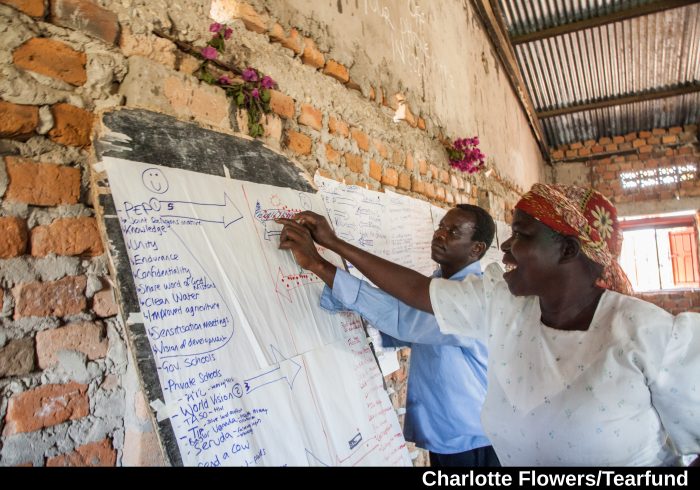Tearfund: “I was floored by the results and the changes QuIP was able to pick up on and document, as per testimonials from the community. I was floored… At the start of the process they [local partners] were a bit unsure, but they really bought in by the end, and contributed a lot during the workshop. I think they were really pleased with how the study went, and really understood afterwards why we’d done it the way we did. We really want this kind of buy-in from our partners, because we don’t want the learning to stay with us, we want it to be with them. It’s about our partners thinking about what they can learn from this research, what are they going to do differently.’’
 “I visited each community, firstly to thank them for taking part in the research. Then the main thing was to share the findings and celebrate their success, reinforcing the message that ‘you have done this, not us.’ I told them we’d been a bit reticent about doing it in a way where we weren’t telling them who the research was for, because people might feel we were deceiving them, but we wanted people to feel completely free to tell us about their whole wellbeing. However, people were understanding. They said ‘yes, that makes sense, because this way we could be more honest with you.’
“I visited each community, firstly to thank them for taking part in the research. Then the main thing was to share the findings and celebrate their success, reinforcing the message that ‘you have done this, not us.’ I told them we’d been a bit reticent about doing it in a way where we weren’t telling them who the research was for, because people might feel we were deceiving them, but we wanted people to feel completely free to tell us about their whole wellbeing. However, people were understanding. They said ‘yes, that makes sense, because this way we could be more honest with you.’
They really understood why we’d done the interviews blindfolded, so that was good. I facilitated mini workshops where we talked about the findings from QuIP and dug a little deeper. For example, sometimes participants had mentioned things we didn’t know about, like a small local NGO; and we wanted to verify those kinds of things. So we got some really good stories, which were helpful in understanding some of the results. People shed a bit more light on things that had come up in the interviews, and it was nice to go deeper where we were unsure of some of the results. Going back to the communities and doing the unblindfolding was great. We’ll definitely be doing that again.”


